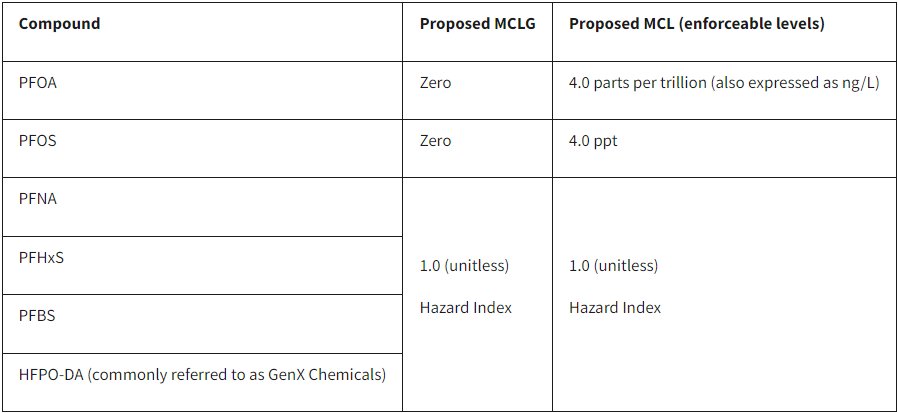EPA Administrator Michael Regan announced a first of its kind National Primary Drinking Water Regulation at a press conference in Wilmington on Tuesday. The regulation applies to six PFAS (Per- and polyfluoroalkyl substances) also known as “forever chemicals” that can be found in drinking water.
Regan who previously served as the head of the North Carolina Department of Environmental Quality under Roy Cooper told a crowd at UNC Wilmington, “EPA is proposing the first ever national standard to protect communities from PFAS in drinking water.”
The proposed plan, which won’t be completed until later this year, will have the largest impact on public water utilities. Utilities will be required to constantly monitor for the six PFAS which include PFOA and PFOS as individual contaminants, and PFHxS, PFNA, PFBS, and GenX as a mixture. Notifications to the public of PFAS levels and a reduction of contamination if levels exceed the standards are also required.
NCDEQ Secretary Elizabeth Biser who also spoke at the announcement noted that the North Carolina DEQ Action Strategy for PFAS which was released in June of last year has the department already working on PFAS contamination with water utilities and municipalities.
“The state is taking a whole department approach for PFAS. Under our Action Strategy, our approach is to research, regulate, or remediate,” Biser said. “We focus on protecting communities through research and identifying where PFAS contamination exists.”
North Carolina was at the center of national attention in 2017 when the Wilmington StarNews ran a story about GenX in the Lower Cape Fear River Basin.
GenX is a chemical used to make Teflon, firefighting foam, solar panels, and other products according to a report from the John Locke Foundation. The chemical made its way into the Cape Fear River in Bladen County at the Chemours Fayetteville Works plant.
National Primary Drinking Water Regulation

“Dr. Knappe an engineering professor at North Carolina State and his students were conducting water sampling in the Cape Fear River when they discovered the presence of a toxic chemical compound known as GenX,” EPA Administrator Regan continued “Chemours a chemical manufacturing company in Fayetteville had been deliberately polluting the air and water with these chemicals for decades.”
Unlike prior advisories from EPA about PFAS and drinking water, the new proposed regulations come with enforceable metrics.
“EPA is proposing to establish legally enforceable levels for six PFAS known to occur in drinking water,” Regan said.
Currently, each state is left to handle its own regulations and enforcement. In North Carolina, DEQ has a consent order with Chemours and Cape Fear River Watch which requires the chemical maker to reduce their PFAS emission by 99.9%.
“Long-term exposure to certain types of PFAS have been linked to serious illnesses, including cancer, liver damage, and high cholesterol,” Regan said. However, the health effects of PFAS are still largely unknown.
“We anticipate that when fully implemented, this rule will prevent thousands of deaths and reduce tens of thousands of serious PFAS related illnesses.,” Regan said.
A public hearing on the proposed rule is set for May 4. Public comment can be submitted on the EPA website.